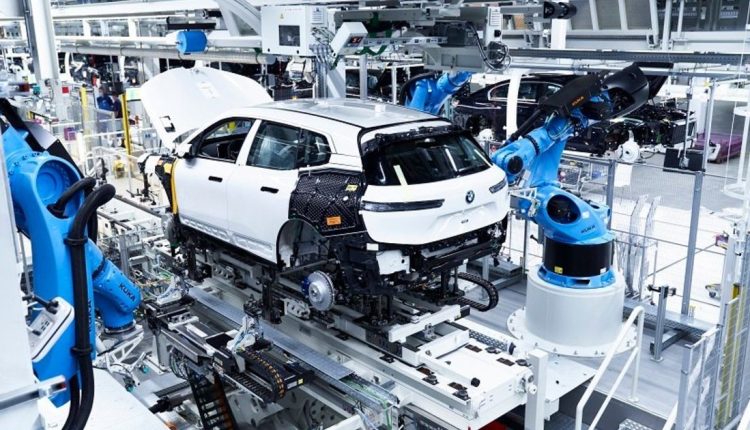BERLIN — BMW is being forced to stop production of BMW and Mini cars in its German and other European plants after Russia’s invasion of the Ukraine halted deliveries of key components.
“The conflict in Ukraine is having a far-reaching impact on production in the supplier industry there. The resulting production stoppages will lead to successive production adjustments and interruptions at several BMW plants,” a company spokesman told the Frankfurter Allgemeine Zeitung.
Vehicle production at BMW’s plants in Munich and in Dingolfing, both Germany, will be paused next week, as will output at the Mini factory in Oxford, England.
Engine production at BMW’s engine factory in Steyr, Austria, will also be suspended.
Adjustments to production shifts will also be necessary at BMW’s plants in Leipzig and Regensburg, Germany, the spokesman told the newspaper.
The stoppages mean that almost the entire European production of the automaker is being impacted by the Ukraine crisis.
BMW has set up a crisis team, similar to those established by other automakers including Volkwagen and Stellantis that have been hit by the supply disruption.
Specialist departments are in intensive talks with suppliers to secure supplies via alternative production sites and to restart production as quickly as possible, the BMW spokesman told the Frankfurter Allgemeine Zeitung.
The stoppages are being caused after deliveries of wire harnesses that BMW sources from western Ukraine were disrupted. The harnesses are a key part of a vehicle’s electrical systems.
German cable maker Leoni, with two plants in Ukraine employing some 7,000 workers, said it is intensifying efforts to help offset the disruption in Ukraine by adding capacity at other sites, while prioritizing the safety of its employees.
“Logistics in and out of Ukraine are a particular challenge, especially because of the partly chaotic situation at the border points with the EU,” a Leoni spokesman said in a statement.
German automotive companies and suppliers maintain some 49 production sites in Russia and Ukraine, according to the German car lobby group VDA.
BMW also said it had halted the export of cars to Russia and would stop production in the country.
Last year, BMW assembled about 12,000 vehicles at a factory in the Russian exclave of Kaliningrad that BMW has operated with local partner Avtotor for more than 20 years.
Sales of BMW brand vehicles in Russia rose 10 percent to 46,802 last year, according to the Moscow-based AEB industry association.
Reuters and Bloomberg contributed to this report


